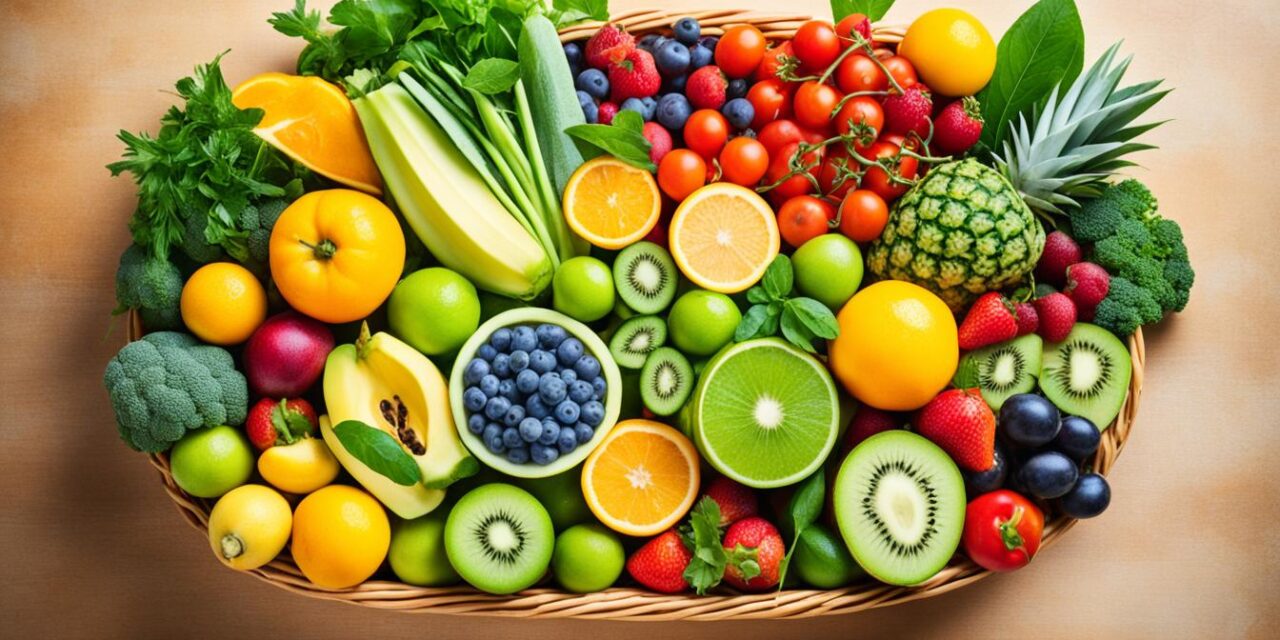Imagine waking up one morning, feeling motivated and determined to kickstart your weight loss journey. You’ve heard about the latest trend in the fitness world – the detox cleanse. Promising quick results and a jumpstart to your weight loss, it sounds like the perfect solution. But before you dive in headfirst, it’s important to separate fact from fiction and understand what experts have to say about the effectiveness and benefits of a detox cleanse.
Detox cleanses have gained popularity as a rapid weight loss solution. These short-term programs involve drastic dietary changes to promote quick weight loss, but their methods and duration can vary widely. Some cleanses may include herbal supplements or exercise, while others focus on modifying dietary choices. While there is no scientific evidence to support the effectiveness of detox diets specifically, very-low-calorie diets (VLCDs) have been shown to be effective for rapid weight loss. However, weight loss cleanses may exclude vital nutrients and can lead to severe nutritional deficiencies, so it’s important to approach weight loss in a balanced and healthy manner.
Key Takeaways:
- Detox cleanses are short-term programs that involve drastic dietary changes for rapid weight loss.
- There is no scientific evidence specifically supporting the effectiveness of detox diets.
- Very-low-calorie diets (VLCDs) have been shown to be effective for rapid weight loss.
- Weight loss cleanses may exclude vital nutrients and can lead to severe nutritional deficiencies.
- It’s important to approach weight loss in a balanced and healthy manner.
What’s the Difference Between Cleanse and Detox Diets?
When it comes to transforming your eating habits and improving your overall health, cleanse diets and detox diets are two popular options. Although these terms are often used interchangeably, it’s important to understand the distinct differences between them. Let’s dive in and explore what sets them apart.
Detox diets, as the name suggests, focus on eliminating toxins from the body. Proponents of detox diets believe that our bodies need assistance in removing harmful substances and that these diets can help support the detoxification process. To achieve this, detox diets often involve very strict dietary regimens, including fasting, consuming herbal supplements, and eliminating certain foods.
“Detox diets cleanse your body from the inside out, helping you get rid of toxins that can cause harm.”
On the other hand, cleanse diets prioritize healthy foods and aim to eliminate unhealthy or allergenic foods from your diet. Rather than focusing solely on detoxification, cleanse diets emphasize overall health and well-being. They encourage you to incorporate nutrient-rich, whole foods into your meals and make conscious choices about what you consume.
While weight loss may be a goal for some detox diets, cleanse diets primarily aim to reduce weight and curb cravings by promoting healthy eating habits. By eliminating processed foods and focusing on natural, nourishing options, cleanse diets provide a pathway to a healthier lifestyle.
Why Choose a Cleanse Diet?
There are numerous benefits to embracing a cleanse diet:
- Improved digestion and nutrient absorption
- Reduced inflammation
- Increased energy levels
- Enhanced mental clarity
- Weight management and loss
- Strengthened immune function
By incorporating cleanse diets into your lifestyle, you can experience these advantages while enjoying delicious and healthy meals. So, why not give it a try and embark on a cleanse diet journey to revitalize your health?
Not All Weight Loss Cleanses Are the Same
Weight loss cleanses come in various forms and variations. Some popular examples include the Whole30 cleanse, juice cleanses, the Master Cleanse, BeachBody Ultimate Reset, and the 10-Day Green Smoothie Cleanse. These cleanses differ in terms of restrictions, duration, supplements, and necessary ingredients. For example, some cleanses may restrict participants to liquid foods, while others may eliminate certain food groups. It is important to choose a weight loss cleanse that aligns with your individual preferences and goals.
When exploring weight loss cleanses, you’ll find a wide range of options, each with its own unique features and guidelines. Let’s take a closer look at some popular examples:
| Cleanse | Restrictions | Duration | Supplements | Ingredients |
|---|---|---|---|---|
| Whole30 | No gluten, dairy, soy, grains, legumes, added sugars, or processed foods | 30 days | None | Whole, unprocessed foods |
| Juice Cleanse | Liquid diet with vegetable and fruit juices, no solid food | 1-7 days | Herbal supplements may be included | Vegetables and fruits |
| Master Cleanse | Lemonade made with lemon juice, maple syrup, cayenne pepper, and water | 10 days | None | Lemon juice, maple syrup, cayenne pepper |
| BeachBody Ultimate Reset | No processed foods, dairy, gluten, or added sugars | 21 days | Herbal supplements included | Whole, unprocessed foods |
| 10-Day Green Smoothie Cleanse | Green smoothies made with leafy greens, fruits, and water | 10 days | None | Leafy greens, fruits, water |
As you can see, each cleanse has its own set of restrictions and ingredients. Some cleanses focus on eliminating specific food groups, while others emphasize the consumption of whole and unprocessed foods. It’s essential to carefully consider these variations and choose a cleanse that aligns with your dietary preferences and goals.
Remember, no two weight loss cleanses are exactly alike. It’s crucial to evaluate the restrictions, duration, supplements, and ingredients of each cleanse before deciding which one is right for you.
Are They Effective?
When it comes to weight loss cleanses, you may find yourself wondering whether they actually work. While there are no scientific studies specifically on the effectiveness of weight loss cleanses, we can draw some insights by comparing them to very-low-calorie diets (VLCDs).
VLCDs have been the subject of scientific research, and some studies have shown promising results in terms of weight loss. In fact, one study found that rapid weight loss through a VLCD was more effective at lowering cholesterol and blood sugar compared to slower weight loss methods. However, it’s important to note that these studies focused on closely monitored and nutritionally balanced VLCDs, not weight loss cleanses.
Weight loss cleanses, on the other hand, are often characterized by drastic dietary changes that can lead to the elimination of vital nutrients without proper guidance for replacing them. This can be problematic for long-term weight maintenance and overall health.
“Weight loss cleanses may provide quick results, but it’s important to prioritize a balanced and healthy eating style.”
Your ultimate goal should be to adopt a balanced and healthy eating style that promotes sustainable weight loss and overall well-being. Instead of relying on weight loss cleanses, focus on incorporating whole, nutritious foods into your diet and maintaining regular exercise habits. This is the key to achieving lasting results and preserving muscle mass.
To summarize, while weight loss cleanses lack scientific evidence on their effectiveness, very-low-calorie diets have been shown to be more effective for rapid weight loss. However, it’s crucial to approach weight loss in a balanced and healthy manner, rather than relying solely on cleanses or extreme dieting.
The Importance of Muscle Mass Preservation
Preserving muscle mass is an important consideration when pursuing weight loss. Muscle mass plays a critical role in metabolism and overall physical health. While weight loss cleanses may result in rapid weight loss, they can also lead to the loss of muscle mass.
VLCDs, when properly monitored and nutritionally balanced, prioritize fat loss over muscle loss. This is one reason why they are more effective for weight loss compared to cleanses. By focusing on a balanced eating style and incorporating physical activity, you can optimize fat loss while maintaining muscle mass. This is essential for achieving a healthy body composition and long-term weight maintenance.
Remember, weight loss is not just about shedding pounds; it’s about improving your overall health and well-being. Embrace a sustainable and balanced approach, and you’ll be on your way to achieving your weight loss goals.
Do They Offer Any Health Benefits?
Limited scientific research exists on the health benefits of weight loss cleanses. However, some studies have shown that very-low-calorie diets (VLCDs), which share similarities with weight loss cleanses, may have a positive impact on blood sugar control and heart disease risk factors.
VLCDs have been found to improve blood sugar control and reduce the risk of heart disease.
While VLCDs have shown some promising results, it is important to note that the research on weight loss cleanses is still limited. Moreover, it is crucial to emphasize that achieving and maintaining a healthy weight through balanced eating and exercise is the most effective way to treat and prevent chronic diseases.
- Blood sugar control: VLCDs, which often involve strict calorie restrictions, have shown potential in improving blood sugar levels. However, more research is needed to fully understand the long-term effects.
- Heart disease risk: Some studies suggest that weight loss through VLCDs may lead to a decrease in certain risk factors associated with heart disease, such as high blood pressure and cholesterol levels.
Comparison of VLCDs and Weight Loss Cleanses
| Criteria | VLCDs | Weight Loss Cleanses |
|---|---|---|
| Dietary Approach | Strict calorie restriction and balanced nutrition | Varies depending on the cleanse, may exclude vital nutrients |
| Research Evidence | Several studies support the efficacy of VLCDs for weight loss | Limited scientific research on weight loss cleanses |
| Long-Term Sustainability | VLCDs may be challenging to maintain in the long term due to the strict calorie restrictions | Weight loss cleanses may not provide a sustainable, balanced approach to eating |
While weight loss cleanses may claim various health benefits, it is important to approach them with caution. There is currently no significant evidence to support the health claims often associated with weight loss cleanses. To achieve optimal health, it is recommended to focus on adopting a balanced and sustainable approach to healthy eating and weight management.
Conclusion
Weight loss cleanses may promise quick results, but it’s important to understand the risks and limitations associated with them. Rapid weight loss can have negative consequences on your health, such as dehydration and the development of gallstones. Additionally, individuals with a history of eating disorders may find cleanse diets triggering and detrimental to their mental well-being.
To achieve long-term weight loss and overall well-being, it’s crucial to adopt a balanced approach to healthy eating. Instead of relying on restrictive cleanses, focus on clean-eating, which emphasizes whole foods and proper nutrition. By avoiding processed, high-fat, and sugary foods and incorporating regular exercise, you can maintain a healthy weight and reduce the risk of chronic diseases.
Remember, there are no shortcuts to sustainable weight loss. It’s more important to prioritize your health and nourish your body with a well-rounded diet rather than resorting to cleansing methods that may put your well-being at risk. Embrace a balanced approach to healthy eating and enjoy the journey towards achieving your health and wellness goals.
FAQ
Can a Detox Cleanse Jumpstart Your Weight Loss?
What’s the Difference Between Cleanse and Detox Diets?
Not All Weight Loss Cleanses Are the Same, Are They?
Are Weight Loss Cleanses Effective?
Do Weight Loss Cleanses Offer Any Health Benefits?
What are the Risks of Weight Loss Cleanses?
MORE SOURCES TO READ:
- https://www.webmd.com/diet/a-z/detox-diets
- https://www.mdanderson.org/publications/focused-on-health/FOH-cleanses-detox-fasts.h10-1590624.html
- https://www.healthline.com/nutrition/weight-loss-cleanse
![]()














Recent Comments